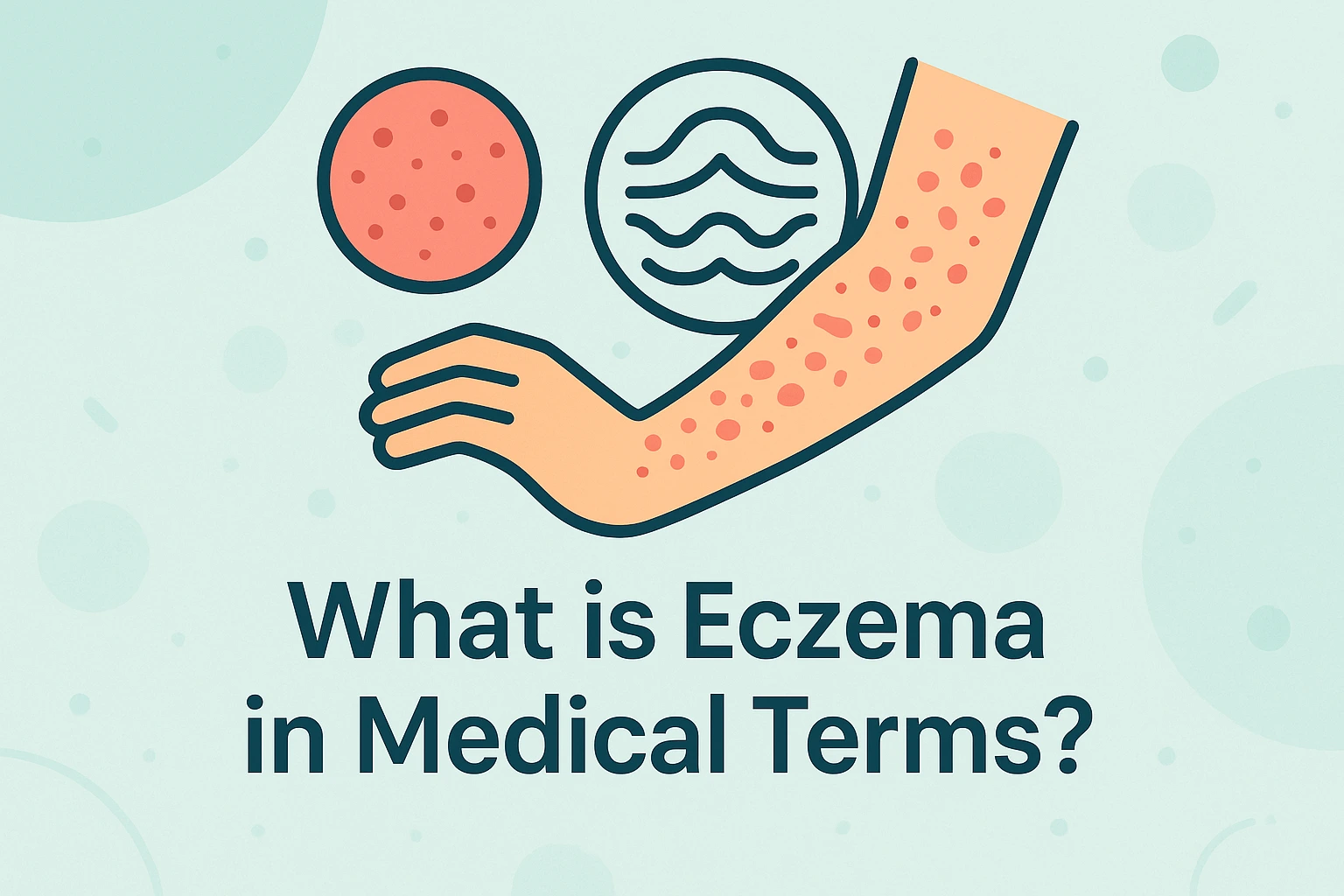Eczema, also known as atopic dermatitis, is a chronic skin condition characterized by inflammation, redness, and itchiness. It often results in dry, scaly patches that can appear anywhere on the body, but it is most commonly found on the face, hands, feet, and the inner sides of elbows and knees. Eczema is a non-contagious condition that affects people of all ages but is most common in infants and young children.
The exact cause of eczema is not fully understood, but it is believed to be related to a combination of genetic and environmental factors, leading to an overactive immune response that triggers inflammation in the skin.
If you experience persistent itching, redness, or irritation that doesn’t improve with over-the-counter treatments, or if the eczema becomes infected, it’s important to seek medical attention. A healthcare provider can help determine the best treatment plan based on the type and severity of your eczema.

Symptoms of Eczema
The symptoms of eczema can vary depending on the type and severity of the condition, but common signs include:
- Itchy skin: This is often the first and most common symptom of eczema, which can lead to scratching and further irritation.
- Red, inflamed skin: Skin may appear red, irritated, and swollen.
- Dry, scaly patches: The skin may become dry and rough, leading to cracked or flaky patches.
- Blisters: In some types of eczema, small blisters may form, causing pain and discomfort.
- Thickened skin: Chronic eczema can lead to skin thickening and hardening due to frequent scratching.
Causes and Risk Factors of Eczema
The exact cause of eczema is not known, but several factors may contribute to its development, including:
- Genetics: A family history of eczema, asthma, or allergies increases the likelihood of developing eczema.
- Immune system dysfunction: People with eczema have an overactive immune response that causes inflammation in the skin.
- Environmental triggers: Exposure to allergens such as dust mites, pet dander, pollen, and mold can trigger eczema flare-ups.
- Irritants: Contact with harsh chemicals, soaps, detergents, or rough fabrics like wool can irritate the skin and worsen eczema.
- Dry skin: Lack of moisture can exacerbate eczema symptoms and trigger flare-ups.
- Climate: Extreme temperatures, especially cold and dry air, can worsen eczema.
- Stress: Emotional stress can trigger or worsen eczema flare-ups.
When to See a Doctor for Eczema?
Seek medical advice for possible eczema if you experience severe itching or skin infections. Consult a doctor if symptoms worsen. Emergency care is necessary for fainting, chest pain, or confusion.
Related Terms of Eczema
FAQs for Eczema
When should I go to the ER for eczema?
If you experience severe symptoms, such as difficulty breathing or swelling, seek emergency care.
How can heat affect eczema in the UAE?
High temperatures and humidity can exacerbate eczema symptoms, especially during long-haul flights or fasting.
What are some ways to reduce eczema risk?
Maintaining skin hydration and avoiding known triggers can help manage eczema risk.
